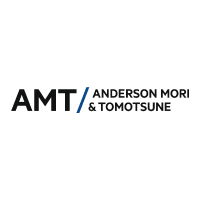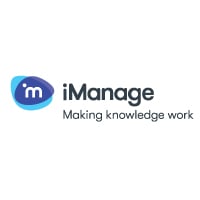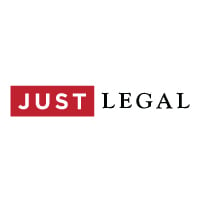

General counsel for Asia Pacific | Lenovo Group







Yosuke Yashio
General counsel for Asia Pacific | Lenovo Group
What are the most significant cases, projects or transactions that you andyour legal team have recently been involved in?
Regulatory authorities have become increasingly active in many APAC countries. In FY24/25, we have encountered regulatory actions against our local entities in several countries. Having swiftly gathered relevant information from local team members through established protocols for dawn-raid scenarios, our Legal team acted promptly, engaging appropriate external experts to manage such sudden interventions by regulators. As a result, we avoided significant risk exposure to our entities, directors, and employees. Our organisation is intentionally kept compact, with fewer layers, so that important information can be conveyed to our global top management for quick decision-making, despite our total workforce numbering almost 70,000 employees worldwide.
There are also a number of initiatives within our company to proactively establish processes to address certain heightened risk areas. Though we cannot speak specifically about these areas due to their confidential nature, such initiatives are developed through the practical sense of risk that each of our Legal team members constantly assesses, piecing together seemingly insignificant fragments of information, and through bold investment decisions requiring candid discussions with relevant internal stakeholders. These initiatives can sometimes have a significant impact on our internal processes, changing how we conduct business in one country—or, occasionally, across multiple countries. In FY24/25, we successfully completed such a major change in one country, a project which took more than a year to accomplish.
How do you approach managing legal aspects during periods of instability or crisis to ensure the organisation’s resilience?
Our Legal team members must constantly adjust our own risk tolerance and reflect this in our day-to-day communications. Recently, legal risks in general have increased not only due to trade wars but also because of more active regulators across many areas and the increasingly assertive stances taken by private enterprises based on contractual rights. Legal team members are well positioned to shed light on the fine line between risks that may materialise and those that may not—and, if they do, the scale of potential impact.
Legal professionals should not simply be conservative; they should be able to accurately identify issues and risks. In particular, in-house counsel need to make, or at least help make, decisions that steer the company in the right direction. Business decisions are often made based on only 30-40% of the desired information; by the time 60-70% of information becomes available, it is often too late for a competitively fast business decision. In-house counsel who will continue to excel in the coming years are likely those who are highly skilled at making decisions based on limited information. Such individuals know which pieces of information are most important for a given issue and are constantly verifying accuracy, even from small fragments of information or conversations from both formal and informal sources. Our Legal team members will continue to help hedge risks while also enabling the business to take calculated risks by accurately highlighting potential issues, even with limited information. Each of us is encouraged to make decisions within our areas of responsibility.
What factors influence your team’s decision to use external legal services versus handling matters in-house, and what criteria are used to evaluate their performance?
We use external legal services mainly in case of the following scenarios: a) The external service is more cost-effective than our inhouse resources; b) The external service has appropriate expertise in a given jurisdiction which we do not have; c) To supplement bandwidth of our inhouse counsel.
Each of our in-house counsel managing external legal services is responsible for selecting the right external counsel at the right cost. Engaging external counsel can be justified only in one or more of scenarios (a) to (c) above. In doing so, each of our team members should have a rough estimate of the volume and nature of the work we are requesting (even though we do not always discuss these details with external service providers), as well as an idea of the likely cost for completing the entire matter, even before requesting a fee quote. Such estimates are based on experience from past engagements with the same or other legal service providers across single or multiple jurisdictions, depending on the individual’s background. With this personal estimate in mind, we can assess a fee quote from external service providers. If the quote aligns with our own estimate, we may consider it reasonable. Otherwise, we might seek a further fee quote from other legal service providers, either to verify reasonableness or to create competitive tension for the engagement.
External service providers are evaluated primarily based on:
(i) whether they directly address our queries or solve our problems, rather than simply citing relevant laws;
(ii) whether the manner of their engagement demonstrates a sense of ownership comparable to that of in-house counsel (for example, understanding internal decision-making processes, responsiveness, and tracking issues through to completion); and
(iii) whether there is an absence of unnecessary work (for example, involving too many lawyers, producing redundant memos, or providing excessively lengthy explanations).
If all of criteria (i) to (iii) are met, we are likely to be eager to continue working with the same external service providers, provided their fees remain reasonable, as described in the preceding paragraph.
Looking forward, what trends do you foresee in the legal landscape over the next five to ten years that companies should prepare for?
It used to be that single country was a factory for global markets. Now more and more regions are aspiring to be manufacturing sites and global markets will continue to be more divided by this trend. Naturally production amounts per factory and production efficiency may decrease, but technology such as AI might help maintain the overall efficiency of the company (such efficiency needs to be sought not only in manufacturing sites but also overall organsations including how we operate legal teams). In forming groups of regional economy centring such country of manufacturing, import restrictions and tariffs on certain goods will continue to be very important, and as countries form economic alliance, countries will continue to treat goods of origins from different countries differently. Thus, legal professions in trade areas will continue to be very tight demand globally.
In forming groups of regional economy, governments of countries may look for such factors as economic security, whether the relationship with countries in close location is in rivalry or supplemental relationship, if there is any imminent political or military conflict. Global supply chain will continue to need to adopt and change per those countries’ relationships, and legal professions are expected to contribute to those discussions.
Though legal issues will continue to be more and more complex as each of regional economic group might take different standards per their local necessity, global companies will continue to be expected by the markets to be as efficient as (or even more than) now. In doing so, global companies will need to continue to seek operational efficiency in every corner of the organisation to respond market demands satisfactorily. Legal teams in organisations can be either a very efficient enabler or a very inefficient stopper, depending on how each of us aspire to be in terms of our own new technology adoption, business-enabling mindset, risk tolerance in decision-making.